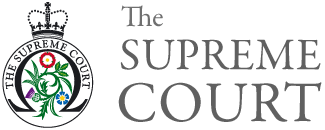Appointments of Justices
Procedure for Appointing a Justice of The Supreme Court of the United Kingdom
The procedure for the appointment of Justices of the Supreme Court of the United Kingdom ("UKSC") is set out in the Constitutional Reform Act 2005 ("the CRA 2005") and The Supreme Court (Judicial Appointments) Regulations 2013.
Eligibility for appointment
Under section 25 of the CRA 2005, there are two possible routes to qualification for appointment as a Justice of the UKSC. First, a person is eligible for appointment if they have held high judicial office for a period of at least two years. "High judicial office" is defined in section 60(2) of the CRA 2005 as meaning a judge of the UKSC, the Court of Appeal of England and Wales, the High Court of England and Wales, the Court of Session, the Court of Appeal in Northern Ireland or the High Court in Northern Ireland.
Alternatively, a person may be eligible for appointment as a Justice of the UKSC if they have qualified and practised as a solicitor, barrister or advocate in England and Wales, Scotland or Northern Ireland for a period of at least 15 years. To do this, they must satisfy either the judicial appointment eligibility condition on a 15 year basis or have been a qualifying practitioner for a period of at least 15 years. A person will satisfy the judicial appointment eligibility condition if they have been a solicitor of the senior courts of England and Wales or a barrister in England and Wales for at least 15 years and have gained experience in law during the post-qualification period (for example, by practising as a lawyer or acting as a judge or arbitrator). A person is a qualifying practitioner if they have been an advocate in Scotland, a solicitor entitled to appear in the Court of Session and the High Court of Justiciary, a member of the Bar of Northern Ireland or a solicitor of the Court of Judicature of Northern Ireland.
Given the complexity and importance of the cases decided by the UKSC, it is expected that applicants will have substantial judicial or equivalent experience.

The selection process
The process for selecting Justices of the UKSC is overseen by an independent selection commission. The selection commission is convened by the Lord Chancellor in accordance with sections 26 to 27B of the CRA 2005 and The Supreme Court (Judicial Appointments) Regulations 2013.
The selection commission must have at least five members. Where a selection commission is convened for the appointment of a Justice other than the President of the UKSC, it must consist of:
- the President of the UKSC, who will be the chair of the selection commission;
- a senior UK judge (who is not a UKSC Justice) nominated by the President of the UKSC;
- a member of the Judicial Appointments Commission;
- a member of the Judicial Appointments Board for Scotland; and
- a member of the Northern Ireland Judicial Appointments Commission.
The chair of the selection commission must seek a nomination from each of the bodies referred to in heads (3) to (5) above of one of its members to be a member of the selection commission. At least two members of the selection commission nominated in this way must be non-legally qualified.
The key steps in the selection process are as follows:
- The Lord Chancellor convenes an independent selection commission whose membership is described above.
- The vacancy is advertised. Applications are sought from a wide range of candidates, including those who are not currently full-time judges, and those who will increase the diversity of the UKSC. Applicants are invited to submit a personal statement, examples of their previous work, and details of independent assessors.
- The Lord Chancellor, the First Minister in Scotland, the First Minister for Wales, the Northern Ireland Judicial Appointments Commission, and senior judges across the UK are consulted as part of the selection process.
- Applicants are shortlisted based on merit and then interviewed by the selection commission.
- The selection commission submits a report to the Lord Chancellor stating who has been selected to fill the vacancy.
- On receiving the report, the Lord Chancellor is required to consult the First Minister in Scotland, the First Minister for Wales, the Northern Ireland Judicial Appointments Commission and senior judges.
- Where a person has been selected under the selection process, the Lord Chancellor may accept the selection commission's recommendation, reject it, or require the selection commission to reconsider. The Lord Chancellor can only reject the selection or require the selection commission to reconsider in certain circumstances.
- If the selection commission's recommendation is accepted, the Lord Chancellor notifies the Prime Minister of the name of the successful applicant who, in turn, notifies HM The King who makes the formal appointment.
- The Prime Minister's Office announces the appointment.
All those appointed to the Court are selected on merit and are people of exceptional intellectual and legal ability, with sound judgement and significant legal experience. Where two candidates are deemed to be of equal merit, the selection commission can give preference to one candidate over the other for the purpose of increasing diversity within the UKSC.
In making selections for the appointment of Justices of the UKSC, the selection commission must ensure that between them the Justices will have knowledge of, and experience of practice in, the law of each part of the United Kingdom. By convention, at least two Justices are from Scotland and one is from Northern Ireland. The commission must have regard to any guidance given by the Lord Chancellor as to matters to be taken into account in making a selection.
The Supreme Court of the United Kingdom
May 2023
